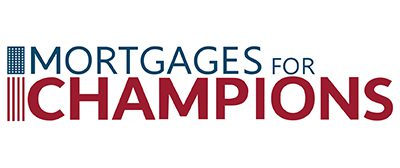Picture this: you found your perfect house. You put in your offer and the seller accepts! Now it’s all about obtaining that mortgage to secure the deal. But did you know there are some mistakes you could be making that will affect your mortgage? We advise you to avoid the following:
- Picking any old mortgage – Look at all of your options and companies. Do the math and lay your choices side-by-side. Have emergency savings for the worst case scenarios
- Confusing Pre-Approval or Pre-Qualification with Commitment – Yes, there is a difference in being pre-approved and being pre-qualified. When you are pre-qualified, the lender will give you an estimate of how much you can borrow from them based on the information you provide. When you are pre-approved, the lender looked over the information you provide and also to lend you up to a given amount at current interest rates within certain conditions. It is better to be pre-approved than to be pre-qualified, however, even a pre-approved is not a guarantee. The lender’s final clearance and loan commitment are subject to an appraisal satisfactory to the lender, a good title, and a last minute credit check and other verifications.
- Having too much debt – You could be the perfect candidate and pay all of your bills on time. However, they also look at your debt-to-income ratio as well as timeliness payments. In other words, being up to your ears in debt is a sure way to be turned down for your mortgage. A way to avoid this is by avoiding buying any big-ticket purchases until you buy your house.
- Forgetting about your credit – You should know your credit score and credit report from the inside out. Check your credit report for any possible mistakes and you can order a free report once a year from the big three credit agencies – Equifax, TransUnion, and Experian. If you see a mistake, dispute it. If your credit score isn’t what you want it to be, repair it before you apply for a mortgage.
- Lying on your loan application – Exaggerating or putting down untruths on your mortgage application and income can be a federal offense. If the lender finds out, they can make your loan due and payable. The ultimate price for lying on your loan application will fall on you the borrower.
- Hiding from payments – The worst thing you can do is ignore phone calls and letters from lenders and businesses you are behind on with your payments. Lenders have many options that could help you avoid foreclosure and losing your home, but they won’t be able to help if you don’t talk to them about your difficulties.
- Skipping the home inspection – Failing to pay the extra free to inspect the home could be a very costly mistake. Good home inspectors examine houses from top to bottom. They are able to tell you how long the appliances will last, if the roof or basement leaks, and if the mechanical systems in the house are in good shape. If you get caught off guard by the necessary repairs, it will mean more money for you and your mortgage payments.
- Making big life changes – It’s a good idea to keep your job for at least a year or two before applying for a mortgage. Lenders like to lend to people who have stability. If you are thinking of switching jobs, consider doing it after you closed the deal on your mortgage.
Are there any other mistakes you shouldn’t make? Are you not too sure if you should do this or that? If you are lost and confused and want a professional answer, call us at 973-577-7008 and we can connect you to a mortgage loan originator who can help you avoid these costly mistakes.


